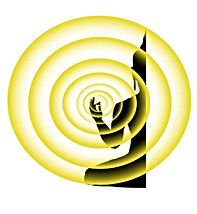
Classic
Homeopathy
CURE for the similar
Revealing Homeopathy Healthcare & Teaching
Unipersonal Ltd.
DR. RUI OLIVEIRA
DIP HOM, MSc HOM MED
Master Course Sensation Method (by Academia
The Other Song - Mumbai - India)
New Homeopathic micro DNA Therapy Practitioner
Therapy with Mycotherapy
Therapy with Microimmunotherapy
HOMEOPATHY WORLD COMMUNITY Member
Editorial Board Member of Internet Scientific Publications
Editorial Board Member of the International Journal of Homeopathy and Natural Medicines
Clinical Thermography accredited by International Thermography.

What is Homeopathy
The word homeopathy comes from the Greek "homeos" (similar) and "pathos" (pathology, disease).
This art of healing was developed by the german physician, chemist and researcher Samuel Hahnemann (1755-1843). Hahnemann, considered the father of Homeopathy, discovered that the right way to treat a disease is to give the patient a certain drug, which in a healthy person caused the same symptoms as this sick person. That is, the symptoms that a healthy person had when taking the substance is equal to the symptoms that a sick person must have in order to be cured by that substance.
Hahnemann set out his theory in the Latin phrase Similia Similibus Curentur (like cures like). Homeopathy, however, is a holistic medicine, it does not intend only to treat the pathology (disease), but regresses to the cause of the whole disorder, thus treating the person as a whole and not just the physical disease. A Homeopath follows a systematic, thorough and detailed case-taking process to understand the patient. This allows understanding the cause of the disease and manifestation of a particular individual. This makes Homeopathy a distinct type of medicine compared to other forms of healing; since it is due to this process that a Homeopath gets at the perfect remedy, which is particularly tailor-made for each individual patient. It is due to this factor that the patient is not only cured of his main complaint, but also experiences complete physical, emotional, mental and general spiritual well-being. Thus, Homeopathy is called a global form of healing, which provides long-term effects. It treats the disease from its root cause, so it is also used in the terminal (final) phase of incurable diseases . It is an absolut non-invasive and gentle way of treatment suitable for all ages and all clinical situations.
